In this article, I will look for the best bridging Token Aggregators for Cosmos tokens. These bridging token aggregators enable fast and safe transfer of tokens over the Cosmos and other blockchains.
Whether it is rapid token swaps, low transfer fees, or high liquidity, knowing the top bridging aggregators will simplify the selection process for efficient and untroubled cross-chain token management.
How to Choose the Best Bridging Aggregators for Cosmos Tokens
Supported Chains: Check if the aggregator provides Cosmos and the other blockchains you use often, like Ethereum, the BNB Chain, or Solana. The more chains supported, the more options you have for cross-chain transfers.
Transaction Fees: Make an analysis of bridging and swap fees. Fees that are as low as possible are great, but also consider other charges that are not always visible, like routing and slippage fees.
Speed & Reliability: Target platforms that have fast processing speeds and low downtimes for cross-chain transfers. Efficient routing protocols minimize delays.
Security & Audits: Choose bridges that are audited, decentralized, and proven secure. Run from aggregators that have trail of exploits.
Liquidity & Slippage: Minimal slippage and smooth swaps depend on high liquidity. Aggregators that source from multiple DEXs tend to provide better rates.
Key Points
| Bridge Aggregator | Supported Chains | Key Features | Use Cases |
|---|---|---|---|
| Rango Exchange | 70+ chains including Ethereum, Solana, BNB Chain, Cosmos | Multi-chain DEX and bridge aggregator, utilizing 100+ DEXs and 24 bridges | Cross-chain swaps, liquidity aggregation |
| Gravity Bridge | Ethereum, Cosmos chains | Facilitates ERC-20 token transfers between Ethereum and Cosmos | Asset bridging between Ethereum and Cosmos ecosystems |
| Squid Router | 60+ chains including Ethereum, Cosmos | Cross-chain bridge supporting multiple blockchains | Token transfers across diverse ecosystems |
| Axelar | 40+ chains including Cosmos, Ethereum, BNB Chain | Decentralized cross-chain communication with General Message Passing (GMP) | Secure and seamless asset transfers across chains |
| Synapse Bridge | Ethereum, Binance Smart Chain, Avalanche, Cosmos | Cross-chain bridging with low slippage and deep liquidity | Token transfers and DeFi integration |
| Stargate Finance | Cosmos ecosystem and IBC-enabled blockchains | Built on Cosmos IBC protocol, offering fast cross-chain transfers | Token bridging and DeFi integration |
| Rubic | Multiple chains including Cosmos | Multi-chain DeFi aggregator for swaps, bridges, and payments | Cross-chain swaps and bridging |
| Meson | Multiple chains including Cosmos | Stablecoin swap protocol facilitating stablecoin free flows | Cross-chain stablecoin transfers |
| ValueRouter | Multiple chains including Cosmos | Token routing protocol for Web3, optimizing routes for cross-chain swaps | Efficient cross-chain token transfers |
9 Best Bridging Aggregators for Cosmos Tokens
1. Rango Exchange
Rango Exchange, which began operating in 2021, is a sophisticated cross-chain aggregator that covers more than 60 blockchains, such as Cosmos, Ethereum, Solana, and UTXO-based chains. Its integration of DEXs and bridges like Osmosis, Thorchain, and Axelar facilitates ecosystem token swaps and cross-chain swaps.
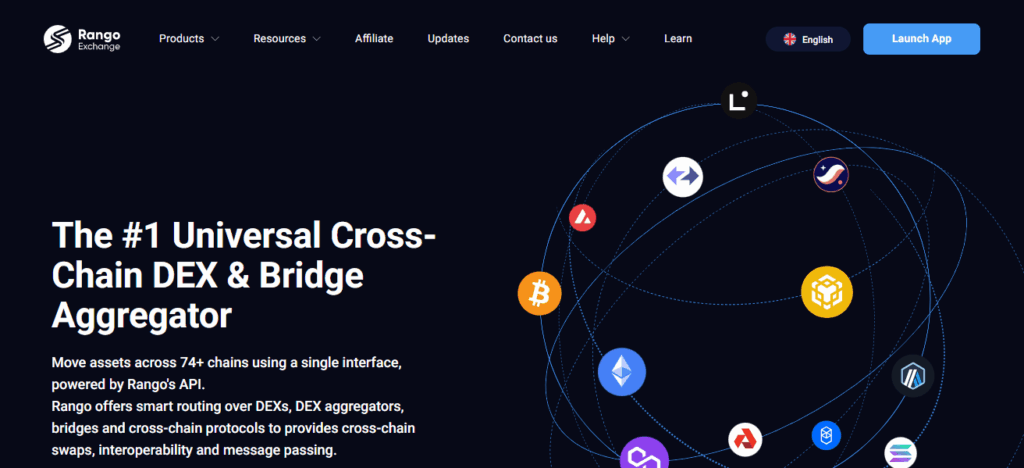
Rango’s versatility and speed in decentralized asset exchange make it appealing to DeFi users and developers. With an intuitive UI and API, it is user-friendly for developers.
2. Gravity Bridge
Rango’s support documentation is always up to date, and the company generally provides excellent customer support on Discord and Telegram. Its IBC support and EVM bridging make it one of the best for Cosmos.
| Feature | Description |
|---|---|
| Launch Year | 2021 |
| Supported Chains | 60+ chains including Cosmos, Ethereum, Solana, BNB, and UTXO chains |
| Core Functionality | Cross-chain swaps via DEX and bridge aggregation |
| Unique Feature | Cosmos-native IBC + EVM bridging in one interface |
| Developer Tools | API access, SDK, and widget integration |
| Customer Support | Active Discord, Telegram, and updated documentation |
Gravity Bridge was launched on December 13, 2021, and it is a galaxy SDK blockchain that links Ethereum and Cosmos ecosystems to each other. It employs tx relaying on a completely decentralized set of validators, maintaining censorship-resistance and trustless bridging.
It is Gravity’s responsibility to manage registered ERC-20 tokens and Cosmos-native assets and is integrated into decentralized exchanges (DEXs) like Osmosis and Stargaze. Use cases include stablecoins and NFTs sent between Ethereum and Cosmos.
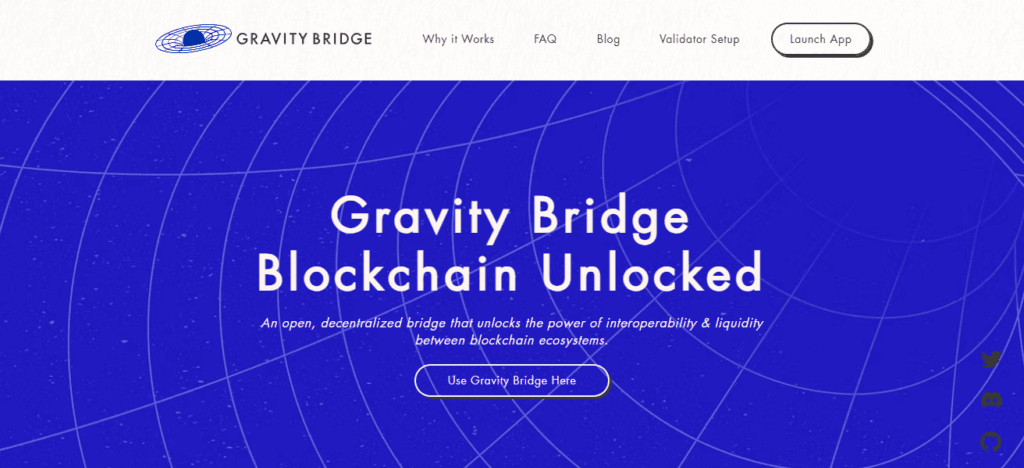
Community-driven as well as community-governed, the project is well supported with Gravity’s multiple audits. Gravity users can reach support through a governance forum and Discord, but the project’s neutral infrastructure is best suited for cross-chain liquidity projects of granular dimension.
| Feature | Description |
|---|---|
| Launch Date | December 13, 2021 |
| Supported Chains | Ethereum ↔ Cosmos (Osmosis, Stargaze, etc.) |
| Core Functionality | Decentralized ERC-20 ↔ Cosmos asset transfers |
| Unique Feature | Validator-governed trustless bridge |
| Governance Model | Cosmos SDK-based chain with on-chain governance |
| Customer Support | Discord, governance forums, and community docs |
3. Squid Router
Squid Router is an Axelar-based project that launched in 2022 and supports over 80 chains, such as Cosmos, Ethereum, Solana, and even Bitcoin. It leverages Axelar’s GMP and IBC to facilitate easy cross-chain messaging and token swaps.
Squid is tailored for dApps requiring omnichain liquidity, allowing users to swap directly to BTC and SOL. Squid employs Chainflip and Circle’s CCTP, and other routing options such as forward packet routing. Squid supports native swaps to BTC and SOL.
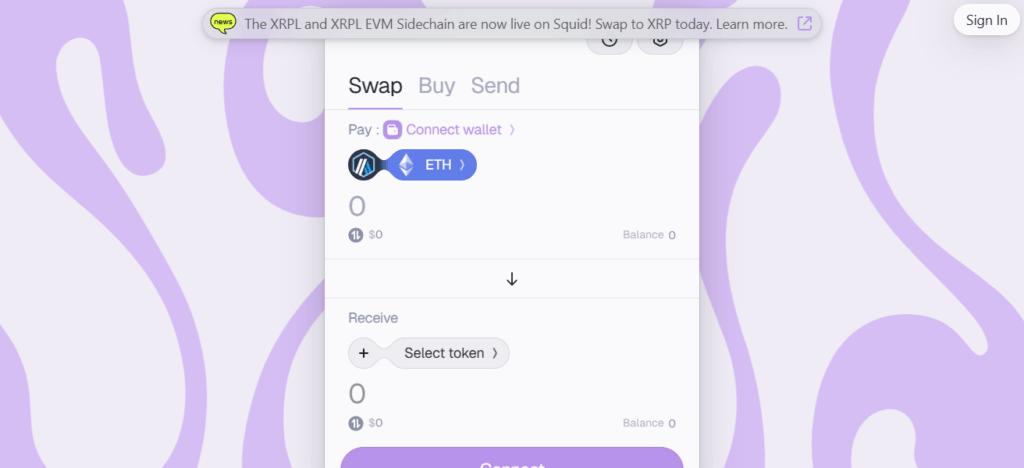
The best part of Squid, aside from the readily available support via Discord and its help center, is its Packet-Forward Middleware that improves routing of IBC from and to Cosmos. It is very well connected with Agoric and Osmosis. This is why it is highly recommended for DeFi apps on Cosmos.
| Feature | Description |
|---|---|
| Launch Year | 2022 |
| Supported Chains | 80+ chains including Cosmos, Ethereum, Solana, Bitcoin |
| Core Functionality | Cross-chain swaps and messaging via Axelar GMP |
| Unique Feature | Packet-Forward Middleware for Cosmos IBC optimization |
| Developer Tools | SDKs, APIs, and widget integration |
| Customer Support | Help center, Discord, and GitHub issues |
4. Axelar
Starting its journey three years ago, Axelar, being based on Cosmos, connects to EVM chains like Ethereum, Polygon, Avalanche, and more than 40 additional chains. It offers seamless support for cross-chain messaging, seamless transfers, and smart contract integrations.
With Axelar’s General Message Passing, dApps, NFTs, and DeFi Protocols are powered seamlessly. Axelar serves as the sole support for Squid Router and has a heavy presence in Osmosis.
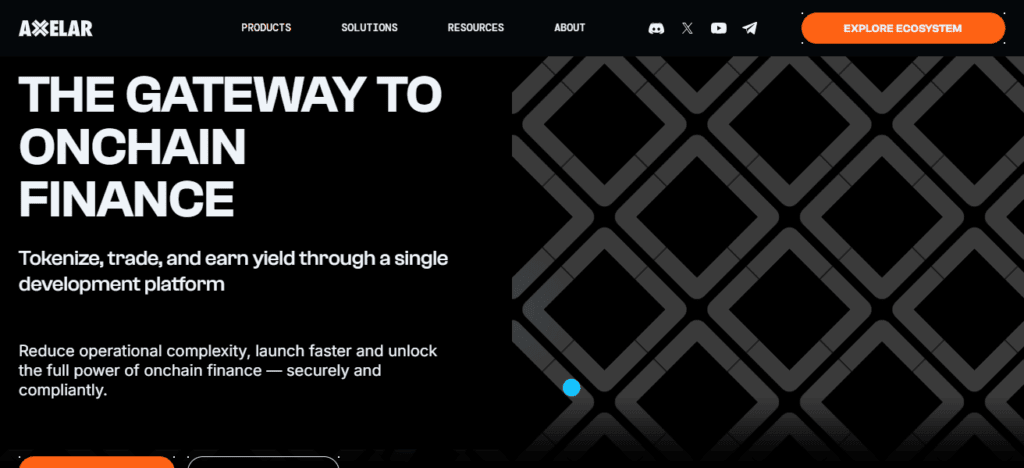
Axelar’s developer SDKs, in addition to support through Discord and Telegram, are clear evidence of the developer’s strong value proposition. It’s universal, validator-based security connects the entire Cosmos to EVM chains, proving its basis for EVM’s interoperability.
| Feature | Description |
|---|---|
| Launch Year | 2020 |
| Supported Chains | 40+ chains including Cosmos, Ethereum, Avalanche, Polygon |
| Core Functionality | Cross-chain messaging, token transfers, smart contract calls |
| Unique Feature | General Message Passing (GMP) for dApp interoperability |
| Security Model | Validator-based consensus with Cosmos SDK |
| Customer Support | Discord, Telegram, and extensive developer docs |
5. Synapse Bridge
Part of Synapse Protocol, Synapse Bridge started in 2021 and now supports Eth, BNB, Polygon, Arbitrum, and over a dozen additional chains. Although Synapse is not native to Cosmos, it does support interoperability to Cosmos via integrations like Noble and Evmos.
Synapse supports cross-chain messaging between dApps and full dApps for DeFi and utilizes liquidity pools and lock-mint models for cheap, quick transfers.
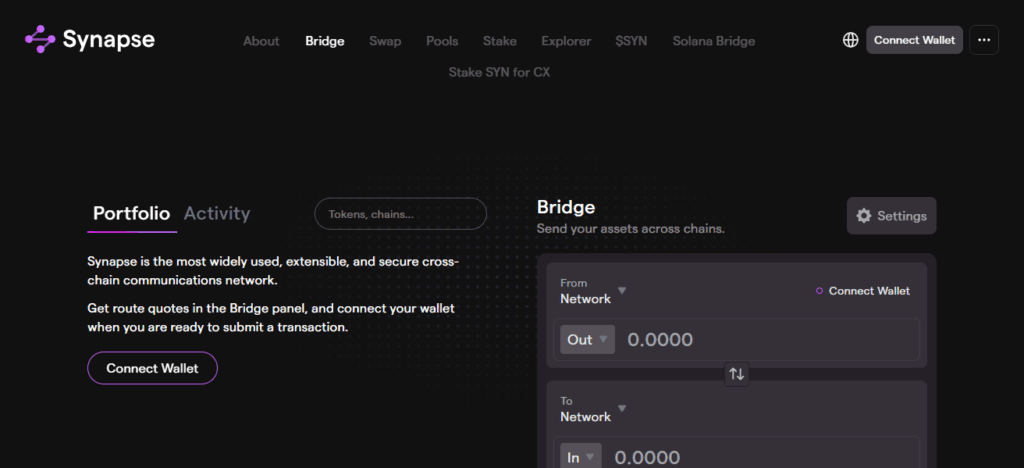
CertiK and Quantstamp back Synapse and offers holders optimistic security through fraud monitoring and slashing. Documentation and Discord provide support for users. Synapse shines with its rapidly bridging stablecoins and a powerful SDK for developers.
| Feature | Description |
|---|---|
| Launch Year | 2021 |
| Supported Chains | 16+ chains including Ethereum, BNB, Polygon, Evmos |
| Core Functionality | Stablecoin bridging and cross-chain messaging |
| Unique Feature | Optimistic security model with fraud detection |
| Developer Tools | SDK, bridge UI, and liquidity pools |
| Customer Support | Discord, documentation, and community forums |
6. Stargate Finance
Stargate Finance started in 2022 with the aim of providing an omnichain liquidity protocol built on LayerZero and it’s liquidity friendly with the Ethereum, BSC, Arbitrum chains and newly added Kava for access to the Cosmos.
Stargate offers seamless native asset transfers through unified liquidity pools for easy stablecoin bridging. Stargate offers USDT and USDC transfers to Cosmos via Kava’s EVM and IBC chains.
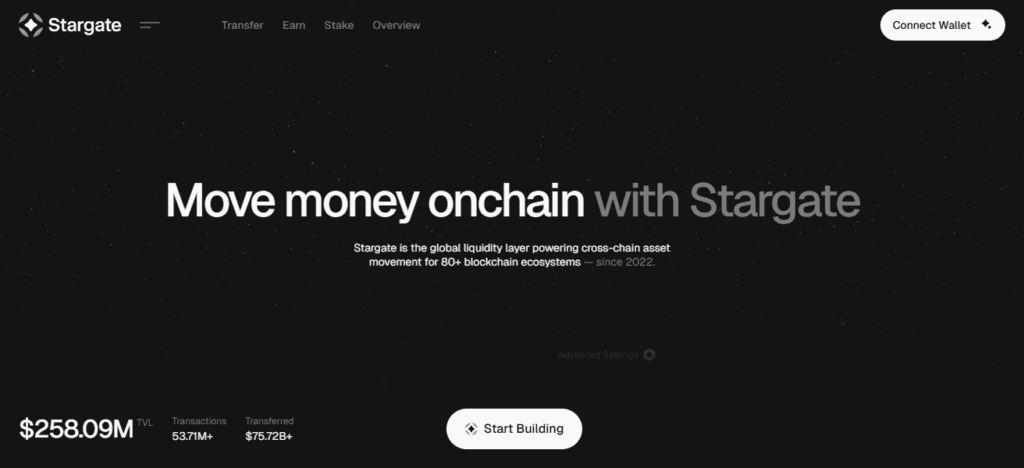
Stargate provides liquidity for DeFi use cases, cross-chain yield farming, community support, and includes documentation. Kava’s connection to Stargate, bridging COSMOS and EVM chains, offers stunning new possibilities for expanding interoperability.
| Feature | Description |
|---|---|
| Launch Year | 2022 |
| Supported Chains | Ethereum, BSC, Arbitrum, Kava (Cosmos access) |
| Core Functionality | Native asset bridging with unified liquidity pools |
| Unique Feature | LayerZero-powered omnichain messaging |
| Use Cases | Stablecoin transfers, yield farming, liquidity provisioning |
| Customer Support | Documentation, forums, and LayerZero community channels |
7. Rubic
Rubic is an all-in-one DEX and bridge aggregator that, since 2020, Rubic has served over 100 different blockchains, including Cosmos, Ethereum, Solana, and even Tron. With integration of over 330 DEXs and 30+ bridges, Rubic offers MEV protection and smart routing Rubic’s powerful cross-chain SDK and widget enables simple integration.
Rubic is compatible with Cosmos chains like Osmosis and Evmos through Symbiosis, and other protocols. Rubic’s most unique feature, chain abstraction
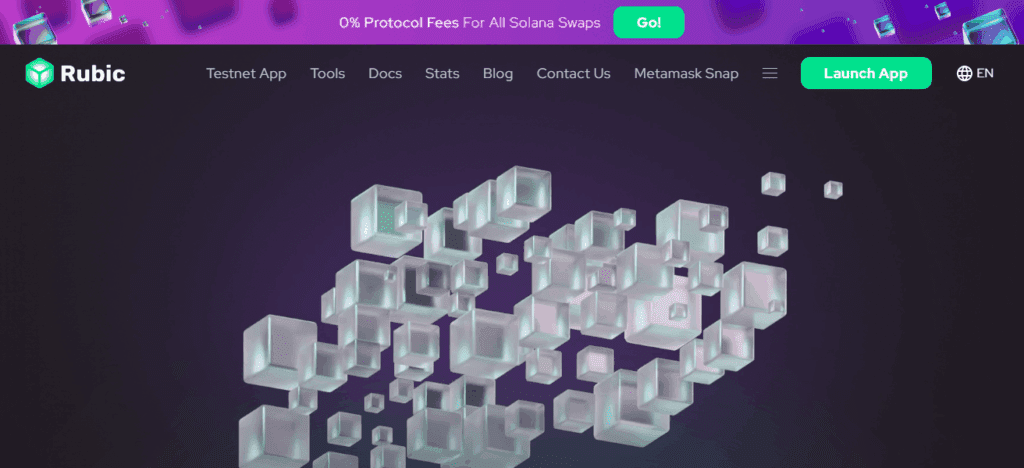
Enables swaps even without native wallets, making it ideal for developers and users for faster, decentralized, and chain-agnostic swaps. Through support in Telegram, Discord, and other documentation, users have seamless access to customer assistance.
| Feature | Description |
|---|---|
| Launch Year | 2020 |
| Supported Chains | 100+ chains including Cosmos, Ethereum, Solana, Tron |
| Core Functionality | Aggregated DEX + bridge swaps with MEV protection |
| Unique Feature | Chain abstraction for wallet-free swaps |
| Developer Tools | SDK, widget, and API |
| Customer Support | Telegram, Discord, and GitHub documentation |
8. Meson
The company Meson Finance was founded in 2021 and focuses on bridging stablecoins across more than 50 chains, such as Cosmos, Ethereum, Solana, and many Layer 2 chains. It employs HTLC atomic swaps and supports 20+ stablecoins.
Meson guarantees optimized speed and cost, completing transfers in 1 to 2 minutes at up to 80% fee savings. Use cases encompass onboarding in DeFi, cross-chain payments, and Web3 app payments.
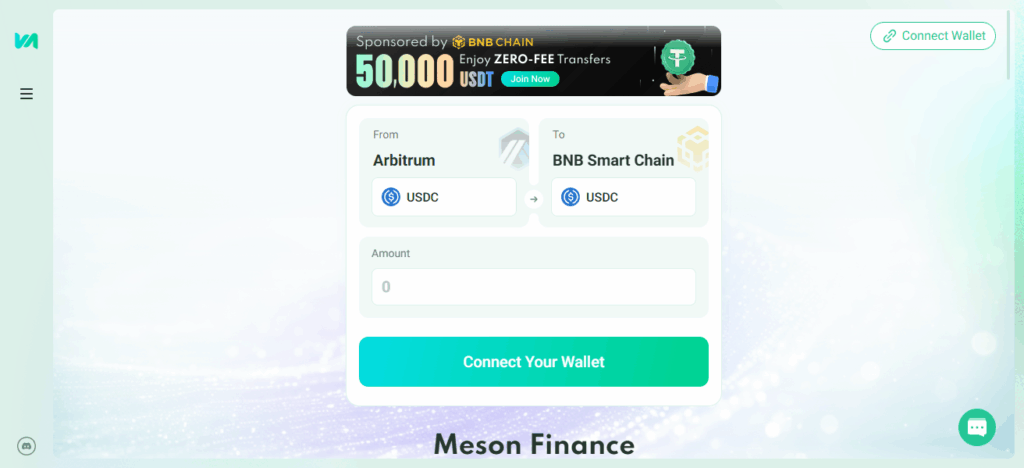
Meson provides SDKs and APIs, while support can be found on Discord and in documentation. Its highlighted capability is deep liquidity and rapid-execution bridging focused on stablecoins.
| Feature | Description |
|---|---|
| Launch Year | 2021 |
| Supported Chains | 50+ chains including Cosmos, Ethereum, Solana, Layer 2s |
| Core Functionality | Stablecoin bridging via HTLC atomic swaps |
| Unique Feature | 1–2 minute transfers with up to 80% fee savings |
| Developer Tools | SDKs, APIs, and Web3 integration |
| Customer Support | Discord, documentation, and developer portal |
9.ValueRouter
Operational as of 2024, ValueRouter’s cross-chain USDC bridging protocol spans 15+ chains, such as Ethereum, Solana, Sui, and Cosmos chains like Osmosis, Sei, dYdX, and Evmos. It provides real-time quotes, transaction simulation, and fee estimation through its MCP server.
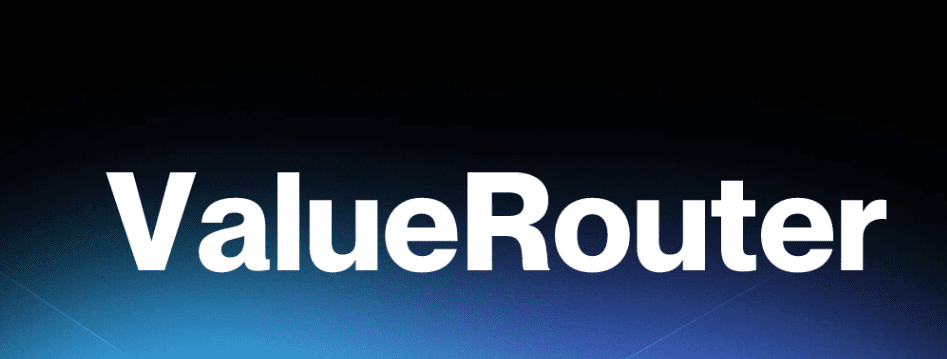
ValueRouter is perfect for AI agents, dApps, and wallets requiring automated USDC transfers. It integrates with the USDC Circle and supports IBC for the Cosmos. Its support channels include GitHub, Telegram, and developer documentation. The unique selling proposition is an AI-friendly bridging infrastructure with automated backend Cosmos to EVM routing.
| Feature | Description |
|---|---|
| Launch Year | 2024 |
| Supported Chains | 15+ chains including Ethereum, Solana, Sui, Osmosis, Sei, Evmos |
| Core Functionality | Automated USDC bridging with real-time quotes |
| Unique Feature | AI-friendly backend with MCP server for simulation |
| Use Cases | Wallets, dApps, agents needing fast USDC routing |
| Customer Support | GitHub, Telegram, and developer documentation |
Conclsuion
In conclusion, Squid, Rango, and Axelar have rapidly diversified their areas of cross-chain interoperability, while Rubic and Meson’s low-cost and ultrafast transactions and AI-compatible automation by ValueRouter add to the agility of cross-chain aggregators.
This new suite of aggregators enhances trustless Cosmos to Ethereum transfers via Gravity Bridge and stablecoin liquidity via Stargate and Synapse. Instant transactions and low-cost services pair with Rubic and Meson’s high interoperability as cosm sdefi hubs for multichain innovation.
FAQ
Rango Exchange, Gravity Bridge, Squid Router, Axelar, Synapse Bridge, Stargate Finance, Rubic, Meson, and ValueRouter.
They support multiple chains including Cosmos, Ethereum, BNB Chain, Solana, Avalanche, and more.
Cross-chain token swaps, DeFi integration, stablecoin transfers, and routing tokens efficiently across chains.











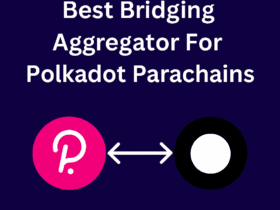

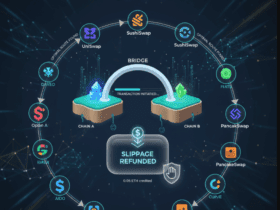
Got a Questions?
Find us on Socials or Contact us and we’ll get back to you as soon as possible.